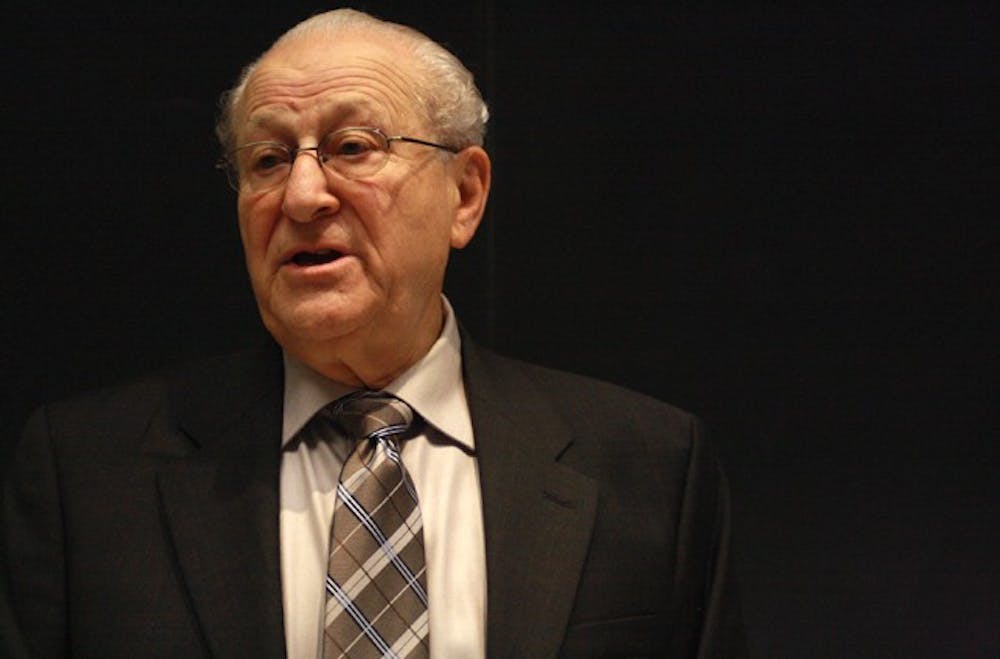Correction (October 27, 12:34 a.m.): Due to a reporting error, this story incorrectly states the date of Irving Roth’s liberation from Auschwitz. The liberation happened April 11, 1945. The Daily Tar Heel apologizes for the error.
The present is the optimal time to change the past.
That was the message Holocaust survivor Irving Roth shared with attendees Monday night in an event sponsored by Christians United for Israel, a national and campus organization.
Roth told his story to a crowd of about 45 in Dey Hall.
The story began with Roth’s explanation of the methodical mass-murdering in Europe during the twentieth century.
“There is one word that describes this whole process: demonization,” he said.
Roth continued to describe his own personal experience in his native country, Czechoslovakia.
“Basically what they did was they took the Jew as immoral.”
Despite growing up in what Roth called a “wonderfully perfect world,” he soon met the horror of the Holocaust.




